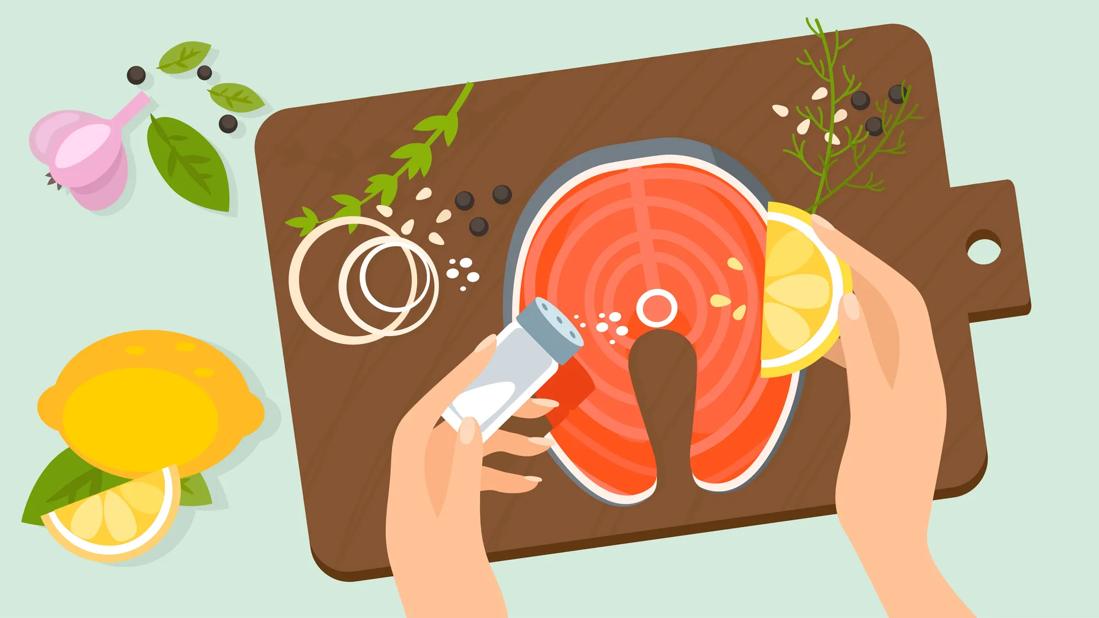Lifestyle changes can bring a slight metabolic boost and health benefits

If you think of your body like a car, your metabolism serves as the engine that burns fuel and produces energy to get you through the day. Rev up that engine, and you enter high-performance mode.
Advertisement
Cleveland Clinic is a non-profit academic medical center. Advertising on our site helps support our mission. We do not endorse non-Cleveland Clinic products or services. Policy
So, how can you increase your metabolism to get a turbo boost? Let’s talk shop with endocrinologist Marcio Griebeler, MD.
Genetics, sex and age play a significant role in your body’s metabolism and ability to burn calories. Ditto for hormones and various health conditions. The common theme? These are factors you often have little to no control over.
“Metabolism is a hormonal process,” Dr. Griebeler explains. “How efficiently your body burns calories depends on your body. It’s different for every person.”
But while your metabolism is largely set, it’s not unchangeable. You do have some influence over it. The way you live your life can nudge your metabolism higher, which can bring benefits like:
Your metabolism is a complex system, but there are some simple things you can do to speed it up both long term and temporarily to help it torch calories more efficiently. Here are six examples.
Increasing your muscle mass through regular exercise can boost your resting metabolic rate, or the amount of calories your body burns while at rest. The reason? Muscle burns more calories sitting around than fat tissue does.
Advertisement
So, if you build muscle, it’ll burn extra calories even while you’re lounging on the couch. Basically, you keep your calorie-burning fires stoked even when you’re done exercising. (It’s known as the afterburn effect.)
How can you build muscle? “Do both aerobic exercise and strength training for a combined 150 minutes each week,” recommends Dr. Griebeler. “Start slowly and progress steadily as you build a routine and make movement a bigger part of your day.”
Aerobic exercise can help melt fat and build muscle. Options include:
To bulk up muscles through strength training, try:
You may also want to consider high-intensity interval training (HIIT) or low-intensity interval training (LIIT) for combined cardio and strength training effects.
Fires need to be fed to keep burning, right? Well, that same sentiment applies to your metabolism, says Dr. Griebeler. Eating healthy meals and snacks throughout the day helps keep your metabolism active.
Skipping a meal, on the other hand, can slow your metabolism, as your body tries to conserve its energy reserves.
Protein takes more energy to digest, absorb and process compared to carbs and fats — and that demand can temporarily boost your metabolic rate. (This is all part of what’s called the thermic effect of food, or TEF.)
Protein also supports muscle growth to further boost your metabolic rate, notes Dr. Griebeler. Win-win!
Remember how not eating enough can slow your metabolism? The same holds if you’re not drinking enough. “Dehydration can slow your metabolism, so drinking enough water throughout the day is essential,” emphasizes Dr. Griebeler.
When you down a glass of water, your metabolism ticks up a bit as your body uses energy to process and absorb the fluid. (Fun fact: Drinking cold water increases energy expenditure, as your body also works to warm it.)
Staying hydrated also helps your cells and organs work properly, which can keep your metabolism cranking.
Chronic stress can flood your body with metabolic changes that increase insulin resistance and make weight loss more difficult. Too much or too little of certain hormones in your system can chip away at your metabolic rate by:
Weight gain related to stress may also contribute to a slower metabolism. (“I rarely see people losing weight if they’re stressed,” shares Dr. Griebeler.)
Advertisement
Relaxation techniques, like deep breathing, meditation and yoga, may help lower your stress levels to keep your metabolism operating at peak efficiency. Ditto for exercise, which carries the extra benefit of boosting muscle mass.
If you’re not catching enough ZZZs at night, your body dials back your metabolism. It’s a defense mechanism to save energy and power you through a sleep-deprived day, explains Dr. Griebeler.
Being chronically tired also creates a stress response in the body, which can harm your metabolism.
In general, most adults need seven to eight hours of sleep per night.
While your metabolism is largely shaped by factors outside of your control, you can raise it by making healthy lifestyle adjustments.
“There’s no magic fix for your metabolism,” says Dr. Griebeler, “but you can improve it.”
Advertisement
Learn more about our editorial process.
Advertisement

It depends on factors like your age, activity level and if you want to maintain, lose or gain weight

Avocados, cheese and nuts are high in calories but have big health benefits

Calorie counts on nutrition labels can be off by up to 20%

Calorie reduction can do more than just help you lose weight — it can also lower age-related inflammation

Your metabolism may torch 1,300 to 2,000 calories daily with no activity

Consuming fewer calories than your body burns is a ‘calorie deficit’ that can lead to weight loss

Understand how your body creates energy to take your fitness to the next level

When free radicals don’t have antioxidants to keep them in check, they go rogue

Wearing a scarf, adjusting your outdoor activities and following your asthma treatment plan can help limit breathing problems

Your diet in the weeks, days and hours ahead of your race can power you to the finish line

When someone guilt trips you, they’re using emotionally manipulative behavior to try to get you to act a certain way